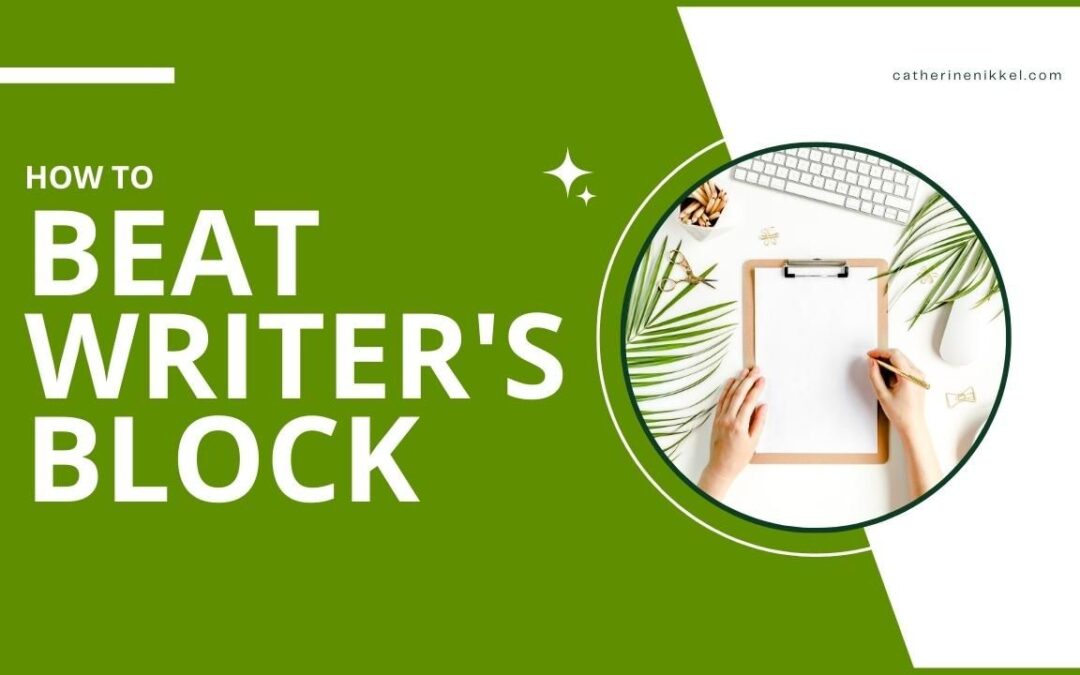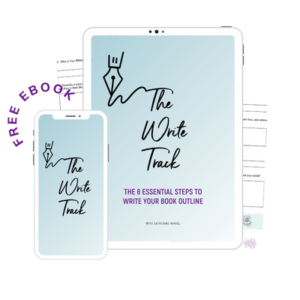Understanding Writer’s Block
Writing is an art, a craft, a journey into self-expression; for many writers, it is a way of life. From writing poetry to crafting a blog post, the joy of putting words together to form something else, a story, or an idea, is simply unparalleled. However, this artistry comes with its fair share of challenges, and one of the most formidable obstacles many writers encounter is writer’s block.
It’s More Common Than You Think
Writer’s block is a common condition that plagues many writers around the globe. Whether drafting your first book, piecing together an article, or even trying to write a short story, you may find yourself staring at a blank page, stuck in a writing funk, and struggling to get your creative juices flowing. This dreaded block can cause even the most prolific and professional writers to feel stuck, dampening their creative process and making the writing process a struggle rather than an enjoyable endeavor.
You’re not alone if you’ve ever faced this creative block. Many famous writers, such as F. Scott Fitzgerald and Maya Angelou, have also grappled with writer’s block during their illustrious careers. It’s something that even the best writers struggle with, and it’s an obstacle that can be overcome.
Demystifying Writer’s Block
So, what exactly is writer’s block? In its simplest form, it can be defined as a condition where a writer loses the ability to produce new work or experiences a significant delay in the writing process. This can manifest as a lack of inspiration, brainstorming ideas, an inability to complete a writing project, or simply a feeling of needing help. It’s like your creative spark has suddenly been extinguished, leaving you with creative constipation.
Self-doubt often exacerbates writer’s block. Your inner critic starts to question every word, every sentence, and every idea you attempt to write, making you second-guess your ability to craft a compelling story or piece of advice. Subsequently, this lack of self-confidence can freeze your creativity, causing you to stop writing and spend your writing time doing household chores or falling asleep at your desk rather than progressing your work.
It’s important to remember that writer’s block does not reflect your talent or skills; it’s a temporary setback, a creative block that can be surmounted with the right tools and techniques. Whether you’re experiencing it for the first time or it’s a recurring issue, this comprehensive guide will provide practical advice and tips on how to beat writer’s block and get your creative juices flowing again.
In the following sections, we will delve deeper into various strategies to overcome writer’s block, write more, explore different writing tools, discuss how to establish a productive writing routine and offer a host of practical advice to help you conquer this common writing predicament. Stay tuned for the next part as we start discussing overcoming writer’s block to write more in more detail.
Strategies to Overcome Writer’s Block
Having understood what writer’s block is, let’s delve into strategies on how to beat writer’s block and overcome it. There are countless ways to beat writer’s block, but a few proven ones have helped many writers reclaim their creative flow and get back to writing.
Start With a Brainstorming Session
When facing writer’s block, one of the first things you can do is to brainstorm new ideas. This might seem difficult when you’re feeling stuck, but the very process of brainstorming can spark ideas and get your creative juices flowing. It’s not about finding the right words immediately to brainstorm the best ideas ever, but more about letting your thoughts run free and generating as many ideas as possible.
Write Freely and Embrace the First Draft
Embrace the concept better idea of the first draft. When you’re stuck in writer’s block, staring at the blank page and feeling pressured to write something perfect can be overwhelming. So, let go of the need to write the ‘great, great stuff’ in your first attempt. Instead, try writing a rough draft without worrying about grammar, punctuation, or coherence. Remember that every great writer knows that the first draft is often far from perfect, but it serves as a stepping stone to refine and improve your work.
Change Your Writing Tool
Changing your writing tool can also bring a fresh perspective and help overcome writer’s block. If you’re used to typing on your computer, try switching to pen and paper. Or consider using a different writing tool, like a typewriter or a digital pen. This can break the monotony and stimulate your brain in new ways, potentially helping you move past your writer’s block writing.
Apply the Pomodoro Technique
This technique involves writing for a specific amount of time, say 25 minutes (one Pomodoro), then taking a short break. The aim is to make the writing process less daunting and spend time together more manageable. It’s an excellent method for maintaining focus and preventing burnout.
Indulge in Creative Tasks
When you feel stuck, it can help to take a break from your current project and do something else that’s creatively stimulating. Paint, doodle, play a musical instrument, or even rearrange your bookshelf. This can reignite your creative spark and lead to the inspiration you need to return to writing.
Overcoming writer’s block is not a one-size-fits-all endeavor, and different strategies work for different people. Experimenting and finding out what methods work best for you is crucial. We’ll explore more tactics to beat writer’s block in the next part of this guide. Stay tuned!
The Role of Routine and Environment in Beating Writer’s Block
The environment you write in and the routine you establish play a significant role in overcoming writer’s block.
Establish a Writing Routine
A consistent writing routine can work wonders in preventing and overcoming writer’s block. By setting aside a dedicated time for writing each day, you can train your mind to be creative during that period. This doesn’t mean you have to write for hours on end – even fifteen minutes can be a good start. Your writing time could be first thing in the morning when the world is quiet or late at night when you can focus without interruptions.
Having a routine lessens the pressure of finding the ‘right time’ to write. Plus, once you get into the habit of writing regularly, you’ll often find that the words start flowing more easily.
Create a Conducive Writing Environment
Your physical environment can significantly impact your creative flow. A cluttered desk, noisy surroundings, or even uncomfortable seating can be detrimental to your productivity. So, create a space where you feel comfortable and focused. This might mean clearing your desk, getting a comfortable chair, or even investing in noise-canceling headphones.
But remember, your writing environment is not just about the physical space. It’s also about creating a positive mental environment. This involves silencing your inner critic and allowing yourself to write without judgment. It would be best to reassure yourself that writing a poor first draft or making mistakes is okay. After all, that’s what editing is for.
Use Writing Tools and Exercises
Incorporating writing exercises into your routine can also be beneficial. These can be a great way to spark ideas and get your creative juices flowing. Try free writing for ten minutes, creating a word cloud around a specific theme, or even start writing down a story from the point of view of one of your main characters.
Additionally, many free writing tools available that can assist you in beating writer’s block. These free tools can range from distraction-free writing apps to idea generators to free tools that can help you improve your grammar and vocabulary.
One resource shared with me by Laura Belgray is a website called 750 Words. It encourages you to write daily (I go with the morning) and tracks your word count. This website is a great way to just write whatever might be hanging out in that head and get it out onto ‘paper’ (screen).
Take Regular Breaks
Regular breaks are crucial, especially when you’re struggling with writing. Don’t force yourself to stare at a blank page for hours. Stand up, move around, do some household chores, take a break, or even take a short walk. Physical activity can stimulate your mind and help you approach your writing project with fresh eyes.
Psychological Aspects of Writer’s Block and How to Tackle Them
Writer’s block can often stem from psychological factors such as stress, self-doubt, fear of failure, or even perfectionism. Understanding these factors can be instrumental in overcoming writer’s block.
Taming the Inner Critic
Every writer has an inner critic. It’s the voice inside your head that whispers, “This isn’t good enough,” “You’re not a great writer,” or “No one will want to read this.” This self-doubt can be paralyzing, causing you to question your best ideas, scrutinize your words, and stop writing.
Taming your inner critic is crucial in overcoming writer’s block. Remember: No first draft is perfect, and every writer, even the most successful ones face criticism. Write for yourself first, quiet the negative voices, and allow your creative process to unfold.
Dealing with Fear and Perfectionism
Fear of failure and perfectionism often go hand in hand. You might fear that your story isn’t original, your main characters aren’t likable, or your article needs to be more engaging. This fear can prevent you from starting or finishing a writing project.
One way to tackle this fear is by reminding yourself that it’s okay to write something imperfect. Writing is a process of continuous learning and improvement. Consequently, every rough draft, every rejected article, and every critique brings you one step closer to becoming a better writer.
Stress Management
Excessive stress can also lead to writer’s block. Stress from a tight deadline, personal issues, or high expectations can hamper your creative process and make writing seem daunting.
It’s essential to manage stress effectively to overcome writer’s block. This might involve incorporating stress-reducing activities into your routine, such as exercise, meditation, or even spending time with a friend or your best friend (for many writers, that’s a pet!). You can also try relaxation techniques like deep breathing exercises or yoga.
Practice Self-compassion
Be kind to yourself. Writing can be hard work, and sometimes the words just won’t come, no matter how hard you try. Accept that it’s okay to feel stuck, it’s okay to have off days, and it’s okay to take a break from writing. Self-compassion can help alleviate the pressure and frustration often accompanying writer’s block.
Actionable Steps to Overcome Writer’s Block
When writer’s block strikes, you sometimes need practical, actionable steps you can take immediately to start writing again. Here are some methods that can help get the creative juices flowing.
Engage with Other Writers
Writing can be solitary, but that doesn’t mean you have to do it alone. Engage with other writers. Join a local writing group or find an online community. Discuss your ideas, share your struggles, and ask for advice. Hearing other writers’ experiences can provide a new perspective and inspire you to write.
Change Your Scenery
Sometimes, all it takes to overcome writer’s block is a change of scenery. Go to a park, a café, or even a library. A new environment can stimulate your senses, provide fresh inspiration, and help you see your story or article differently.
Read, Read, Read
Reading is a source of inspiration for most writers. When you’re feeling stuck, immerse yourself in a book, a blog post, or even poetry. Reading can provide new ideas, help you understand different writing styles, and ignite your creative spark.
Set Realistic Goals
Setting achievable goals can make your writing project seem less daunting. Instead of aiming to write an entire chapter or a complete article in one go, start small. It could be writing 500 words, outlining your next blog post, or even brainstorming ideas. Breaking your writing project into manageable tasks can provide a sense of achievement and motivate you.
Long-term Strategies to Beat Writer’s Block
Overcoming writer’s block isn’t always a quick fix. It often requires long-term strategies and habits to keep the block at bay.
Develop a Writing Habit
Making writing a daily habit can help beat writer’s block. It doesn’t always have to be related to your current project. Journaling, jotting down new ideas, or writing a letter to a friend can keep your writing muscles flexed.
Take Care of Your Mental Health
Your mental well-being plays a significant role in your ability to write. Make sure to take care of your mental health. This might involve doing activities you love, practicing mindfulness, or seeking professional help.
Keep Learning
Writing is a journey of continuous learning. Keep honing your writing skills, learning about the craft, and understanding different genres. The more you learn, the better idea, the more confident you’ll become, and the easier it will be to overcome writer’s block.
Overcoming writer’s block is a process. It may take time, patience, and a lot of trial and error. But remember, every writer faces this challenge at some point. With the right tools, strategies, and mindset, you can beat writer’s block and continue creating incredible stories and articles.
Exploring Different Forms of Writing to Beat Writer’s Block
Suppose you find yourself stuck in a writing funk. In that case, one of the ways to get your creative spark back is to explore different forms of your inspiration through writing exercises.
Dive into Poetry
Even if you don’t typically write poetry, giving it a shot can unlock a new avenue of creativity. The beauty of poetry is in its brevity and the emotion each word can carry. It can also be a different writing tool, allowing you to play with language and expressions, which can transfer back into your prose writing.
Try Short Story Writing
Suppose you’re usually involved in longer writing projects. In that case, taking a break to write something else or to spend time on a short story can be refreshing. The structure and confines of a short story can push you to focus on every word. They can provide a sense of completion quicker than a novel or a larger project.
Experiment with Different Genres
If you primarily write in one genre, try dabbling in another. Each genre has its unique conventions and challenges. Writing a thriller, if you usually write romance or science fiction, if you’re a historical fiction writer, can get your creative juices flowing in new and unexpected ways.
Expanding Your Creative Abilities
Overcoming writer’s block is about more than just writing. It’s about expanding your creative abilities and finding inspiration in unexpected places.
Immerse Yourself in Creative Tasks
Engage in other creative activities. Painting, writing exercises, cooking, dancing, or even gardening can help stimulate your mind and provide a fresh perspective.
Spark Ideas from Real Life
Life is a goldmine of ideas. Observe the people around you, the conversations you hear, or the events you experience. Real life can provide interesting plot ideas, character quirks, or settings for your story.
Pushing Through the Block
There will be days when, despite your best efforts, the right words just simply don’t come. On those days, it’s important to remember that it’s okay.
The Value of Persistence
The key to overcoming writer’s block is persistence. It may be tempting to wait for inspiration to write poetry. Still, most successful writers will tell you that writing is hard work. Often, it’s about simply showing up and committing to the process, even when it feels difficult.
Celebrating Progress
Remember to celebrate your progress, as most writers struggle, no matter how small it may seem. Finished a paragraph? That’s a win. Figure out a character’s motivation? That’s progress. Writing is a journey, and every step forward is an accomplishment.
No matter how long you’ve been writing or how successful you are, it’s inevitable that you’ll encounter writer’s block at some point. But with the right mindset and tools, and by embracing the tips in this article, you’ll be well-equipped to beat writer’s block. Keep writing, keep learning, and remember – every word you write brings you one step closer to your goal.
Embracing Imperfection in Your First Draft
One of the most common causes of writer’s block is the pressure to make everything perfect in the first draft. This pressure can be overwhelming and can bring your writing process to a halt.
The Role of the First Draft
It’s essential to understand that the first draft’s purpose is not to be perfect but to exist. It’s about getting the story out of your head and onto the page. It’s about moving past the blank page and creating something that can be refined later.
Giving Yourself Permission to Write Poorly
Allow yourself to sometimes write something poorly in your first draft. Turn off your inner critic and just write. Remember, the first draft is supposed to be a rough draft, full of imperfections. It’s a work in progress that can be edited and polished over time.
Finding Support in Your Writing Journey
Overcoming writer’s block is easier when you have a whole friend and supportive network around you.
Building a Writing Support Network
Connect with other writers who understand what you’re going through. They can offer advice, provide feedback on your work, and encourage you when you feel stuck.
Learning from Professional Writers
Learning from professional writers can be highly beneficial. Listen to interviews, read their blogs, or attend their talks. Many famous writers share their experiences with writer’s block and how they overcame it. Their strategies might work for you too.
Conclusion
Writer’s block is a common challenge many writers face, but it’s manageable. It’s a hurdle in your writing journey, not the end. The key is to keep going, trying new strategies and writing. You’ll find your creative spark reignited, your ideas flowing, and your words filling the page again. Happy writing!
Frequently Asked Questions
Q: Can writer’s block be cured?
A: Yes, writer’s block can definitely be overcome. While it might seem daunting, various strategies, such as changing your environment, brainstorming ideas, engaging with other writers, and setting achievable goals, can help you break through the block. Maintaining a consistent writing routine and taking care of your mental health is also important.
Q: Is writer’s block a mental illness?
A: No, writer’s block is not classified as a mental illness. It’s a common condition that many writers experience, characterized by an inability to produce new work or a significant delay in the writing process. However, underlying mental health issues like stress, anxiety, or depression can contribute to writer’s block.
Q: What causes writer’s block?
A: Writer’s block can be caused by various factors, including stress, fear of failure, perfectionism, and self-doubt. It can also occur when a writer is mentally or physically exhausted or feels uninspired. By understanding the underlying cause, one can better address and overcome writer’s block.
Use your Voice, Make an Impact.
Catherine x

Email: catherine@catherinenikkel.com
Resources
What type of Content Creator are you? Take the Quiz! – 4 different types of creators, which one are you?
Need help telling your story in your own voice? Let’s make it happen. Schedule a consultation with me here






Love the relatable engagement,great advice, and genuine encouragement!!
Thanks so much! Definitely happy you found it helpful 🙂